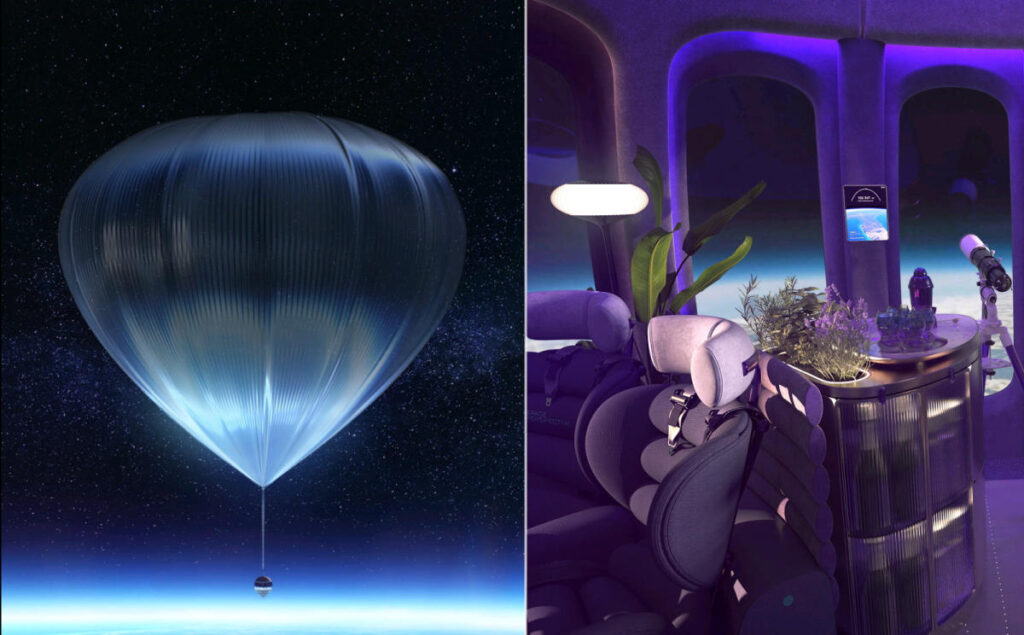This is a luxurious and very expensive balloon capsule that will soon be carrying passengers to the edge of space.
The Spaceship Neptune Excelsior just completed a successful test flight, flying unmanned to an altitude of approximately 100,000 feet.
Florida-based Space Perspective launched the balloon from the Marine Spaceport Voyager spacecraft off the coast of St. Petersburg, Fla., on Sept. 15. The capsule took six hours to reach more than 99 percent of Earth’s atmosphere before making a controlled descent and splashdown.
The test demonstrated several key technologies and brings Space Perspective a step closer to offering commercial space flights, but would-be passengers will still have to shell out more than £94,000 for the privilege of viewing Earth from such a great height.
Up to eight passengers will ascend gently in a pressurized aircraft to an altitude of more than 12 miles per hour and enjoy amenities such as a world-class food and beverage program, comfortable seats and custom headphones.
The company plans to begin crewed spaceflights in 2025 and commercial operations in 2026. More than 1,800 tickets have been sold so far.
Founder and CTO Tabor McCallum described the successful test as a “defining moment,” adding that “this unmanned flight not only proves our technology, it also brings us closer to democratizing space.”
Co-founder Jane Poynter added: “This demonstration shows how accessible and gentle our spaceflight experience can be, making space travel within reach of more people than ever before.”
Is space travel just around the corner?
While space travel is still very much an endeavor for the very wealthy, it may not be long before commercial travel to the edge of space becomes much more affordable and commonplace.
Companies like SpaceX and Virgin Galactic are at the forefront of the effort to carry tourists to higher altitudes than ever before, but as this effort becomes more commonplace, costs are likely to come down.
A UBS report suggests that the space tourism market could be worth more than £3 billion by 2030, and that its core customers go beyond just adventurous billionaires.
Despite recent advances toward space travel, commercial space travel is still some way off before it is fully operational and available. Still, companies like SpaceX intend to send tourists into lunar orbit by 2025, and regular space travel is predicted to become a reality within the next decade.



